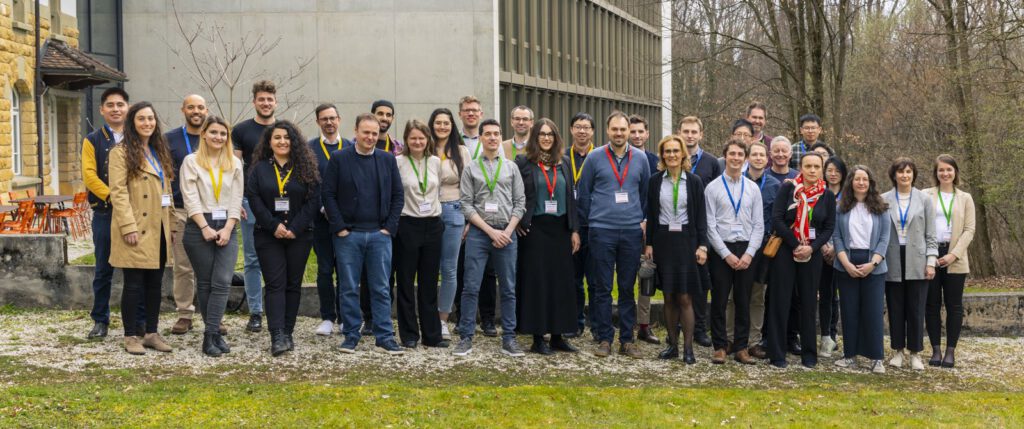From 22nd to 24th of March 2023 Jovana Milic of the University of Fribourg, Adolphe Merkle Institute, in Switzerland and Simon Krause of the MPI FKF successfully organized the Dynamic Materials, Crystals and Phenomena Conference in Fribourg, Switzerland. The event was the first to specifically address dynamic aspects in crystalline materials across disciplines. Such dynamic materials have emerged as a unique category of condensed phase matter that combine crystalline lattice formation with the components that display dynamic behavior in the solid state. This has so far involved a range of materials incorporating dynamic functional units in the form of stimuli-responsive molecular switches and machines with functionalities that are preserved in the solid state. In particular, this has been possible by relying on porous framework materials, metal-organic frameworks (MOFs) and covalent organic frameworks (COFs), as well as other hybrid and bio-inspired materials that have demonstrated potential for serving as dynamic scaffolds.
These materials are extensively investigated in the Nanochemsitry Department and in particular the Research Group of Simon Krause. While these unique properties of dynamic materials often inspired by nature increase the level of complexity in understanding their properties and functions, they also open the way for innovative applications. The aim of the conference was to bring together experts from different disciplines and provide an unprecedented forum for open discussion towards deepening the understanding of dynamic materials across different material classes as well as length and time scales.

The event featured keynote speakers Steven Loeb (University of Windsor, Canada), Monique van der Veen (TU Delft, Netherlands), and Andrew Goodwin (University of Oxford, UK) who covered a wide range of methods and materials setting the stage for 11 other speakers from Germany all the way to Australia. Talks includes aspects of responsive molecular switches and machines, porous dynamic materials (MOFs, COFs), as well as emerging hybrid dynamic materials, such as hybrid perovskites and others. Beyond materials design and synthesis, the discussions addressed critical experimental and theoretical techniques for assessing structural and in particular dynamic properties of this unique class of materials on a spatial-temporal level.
The feedback from all participants was exclusively positive with many of the speakers leaving with one of the MPI conference bags full of new ideas and experiences. The organizers would like to thank all sponsors and in particular the Max-Planck-Institute for Solid-State Research to support the initial idea and later on the actual event.